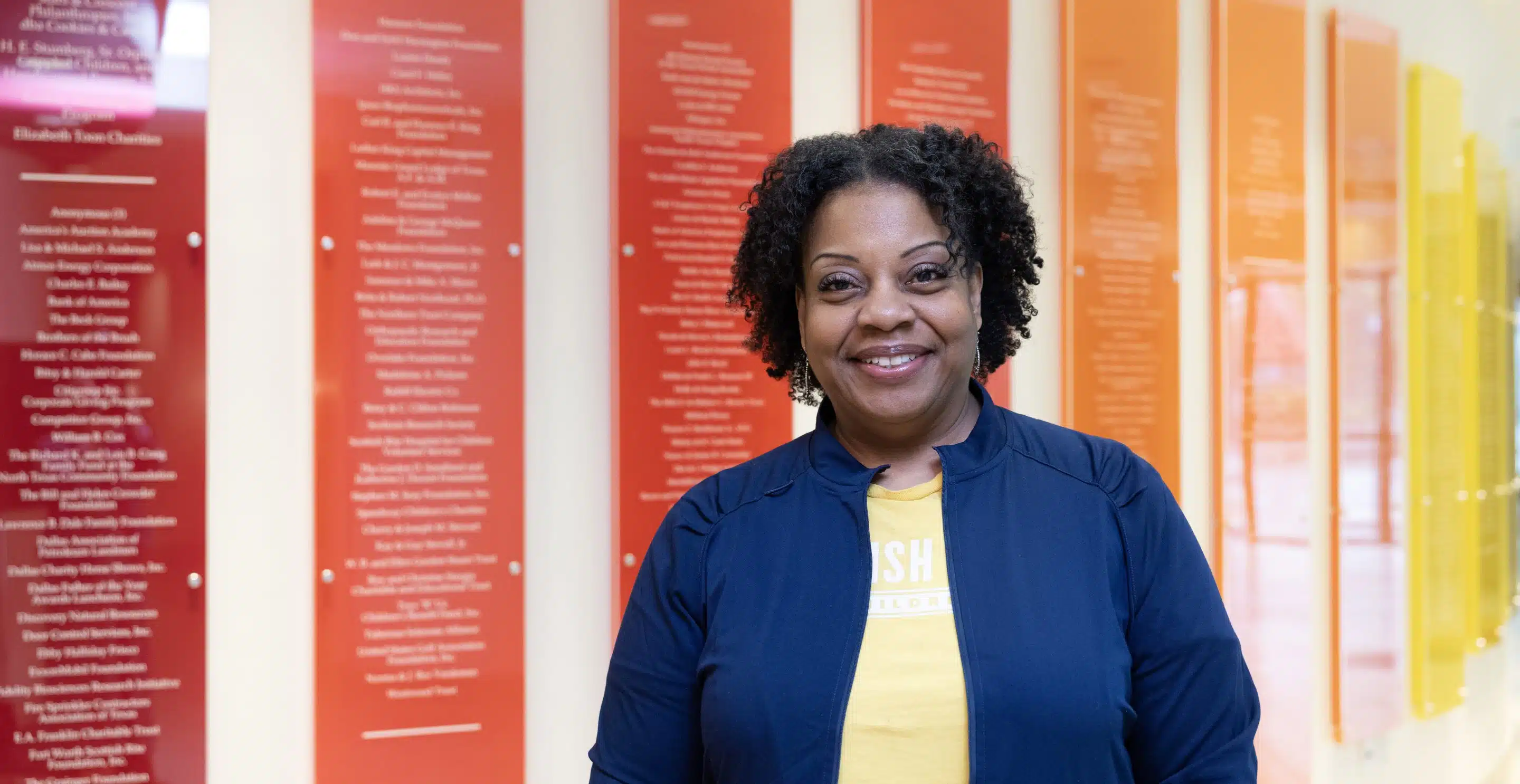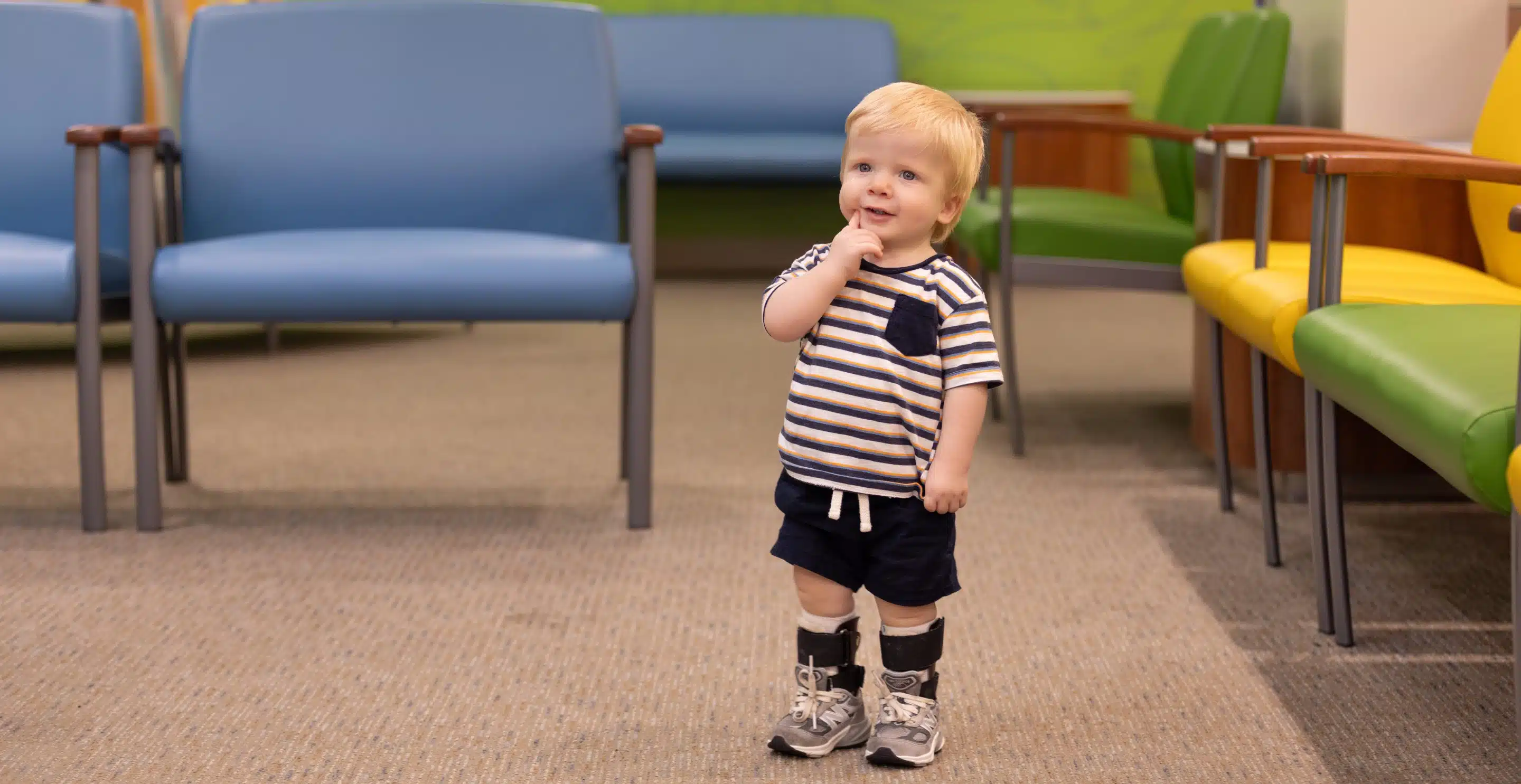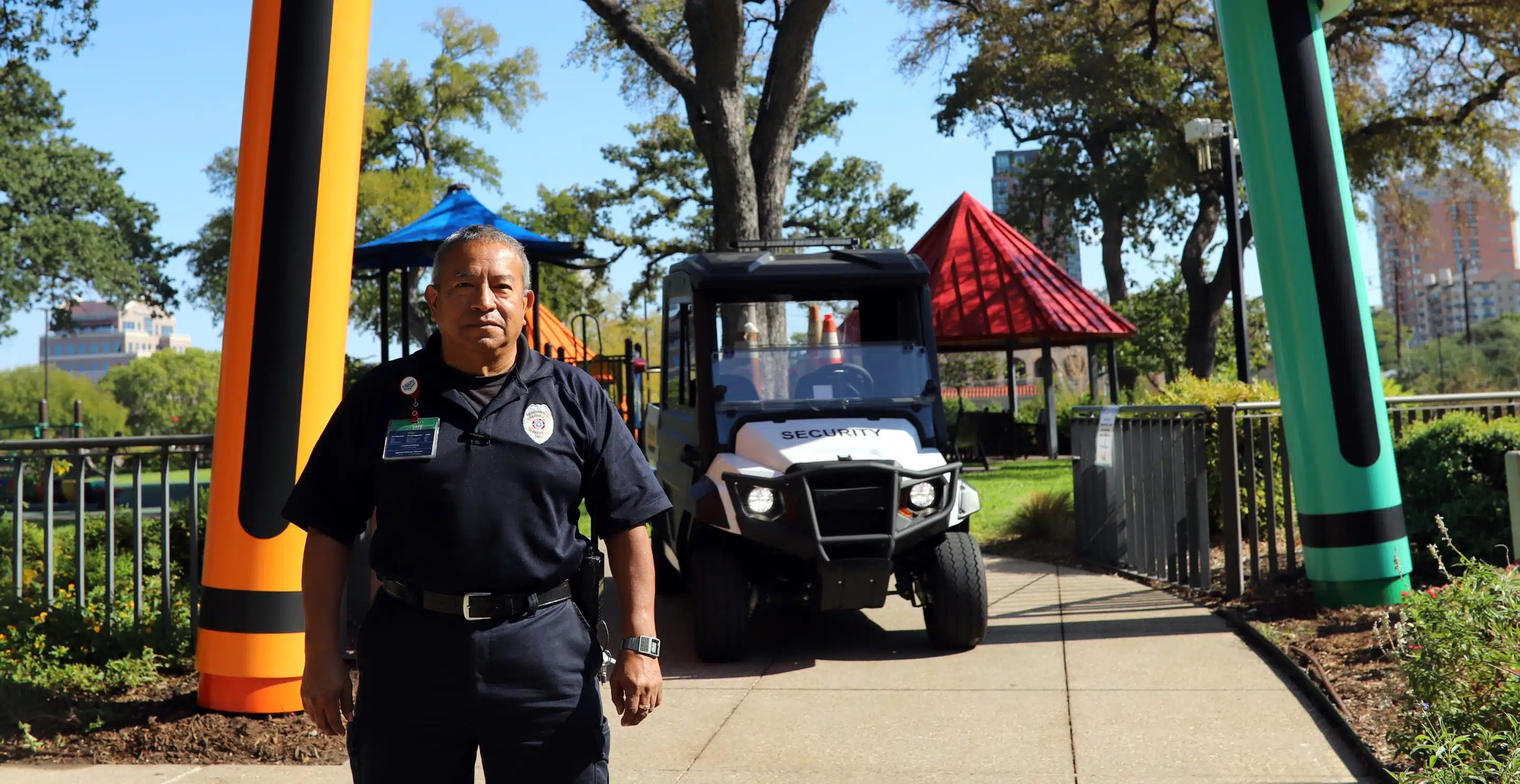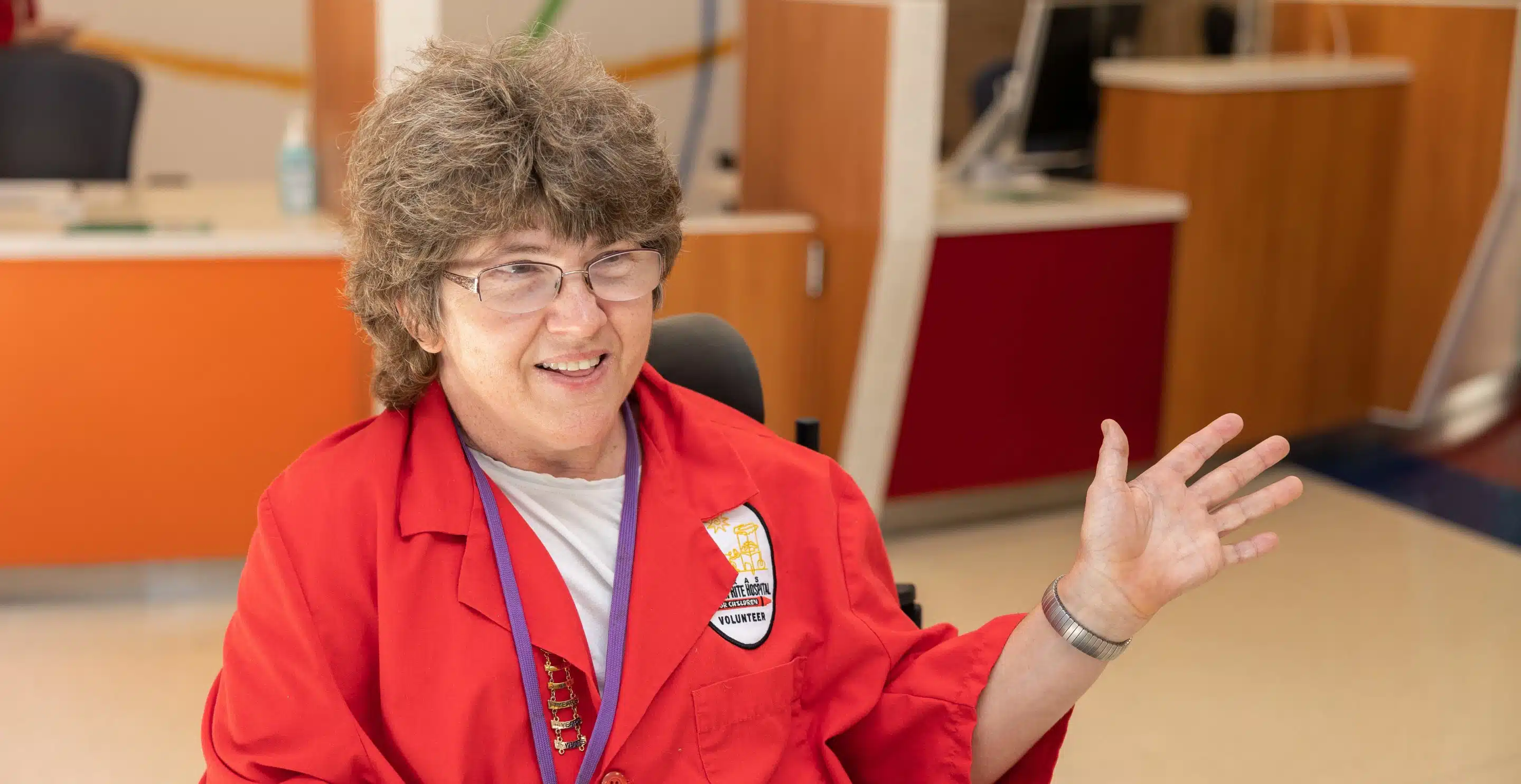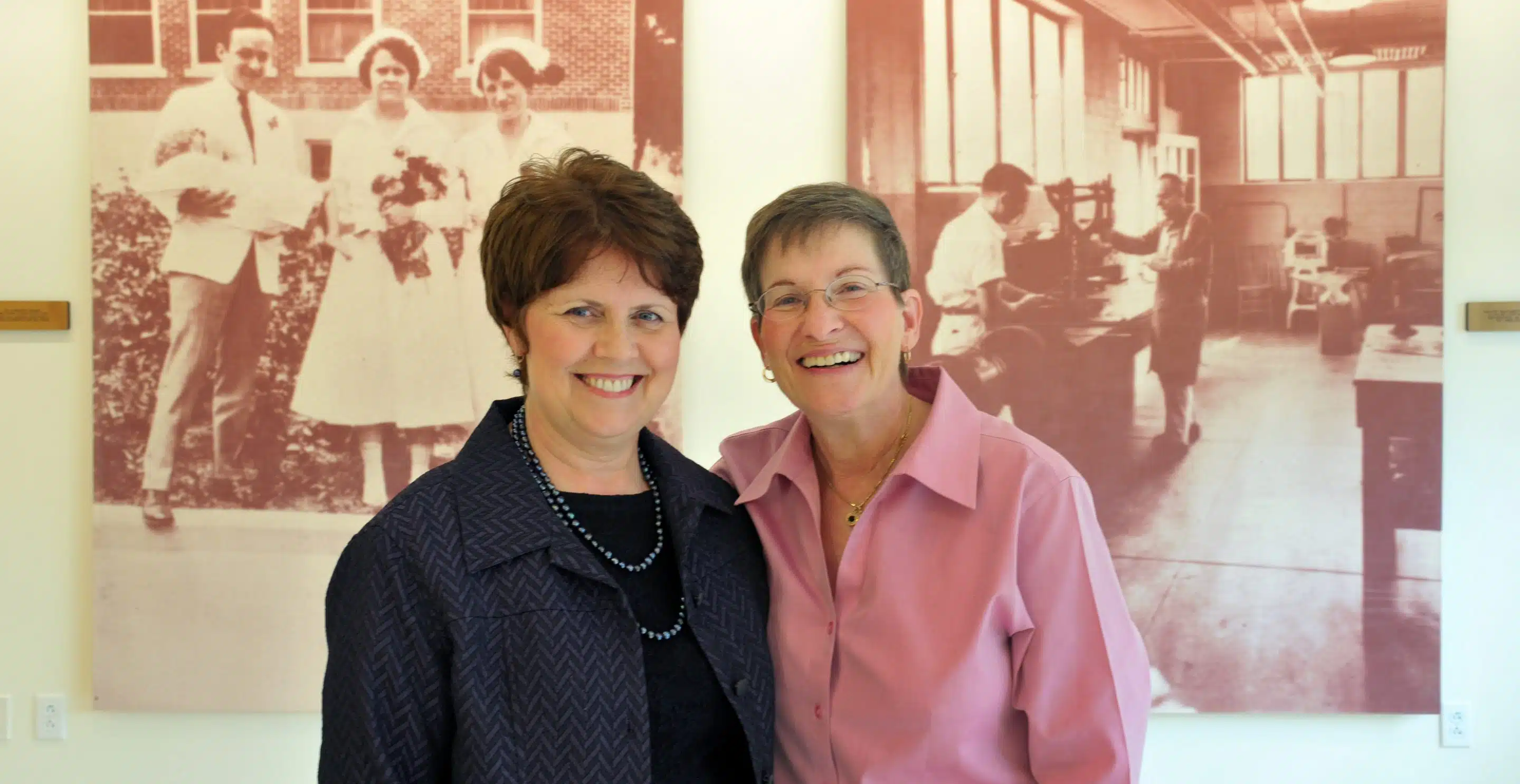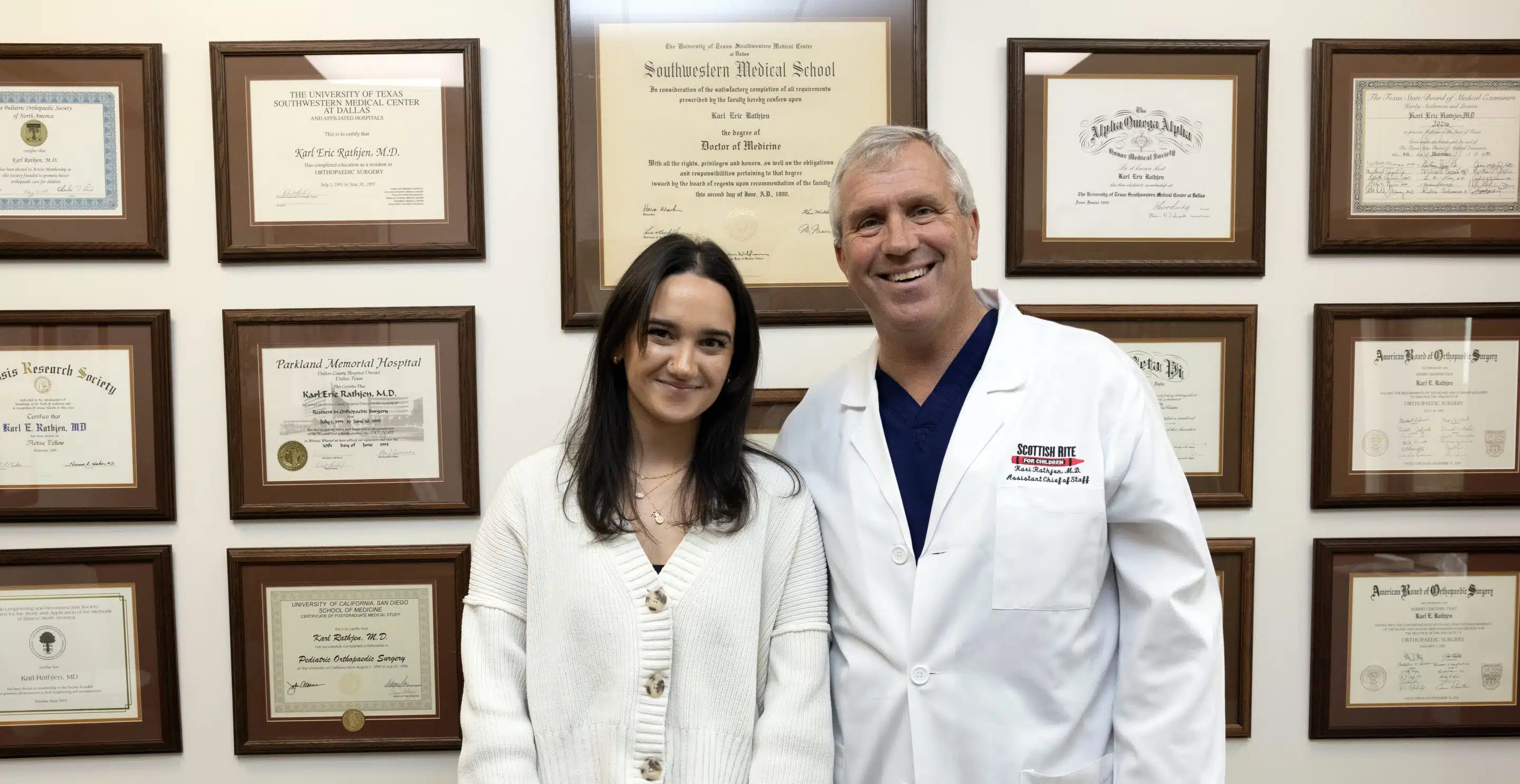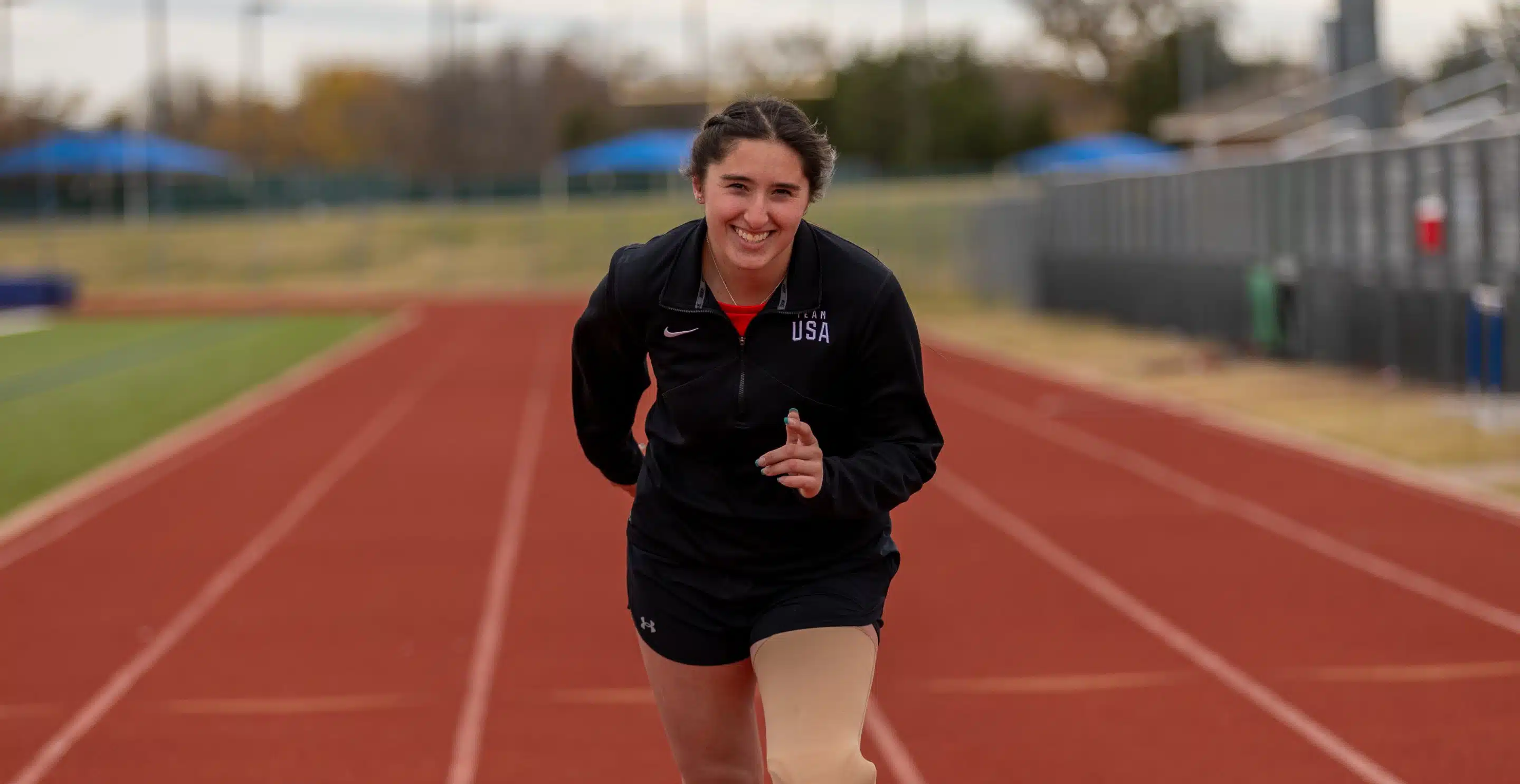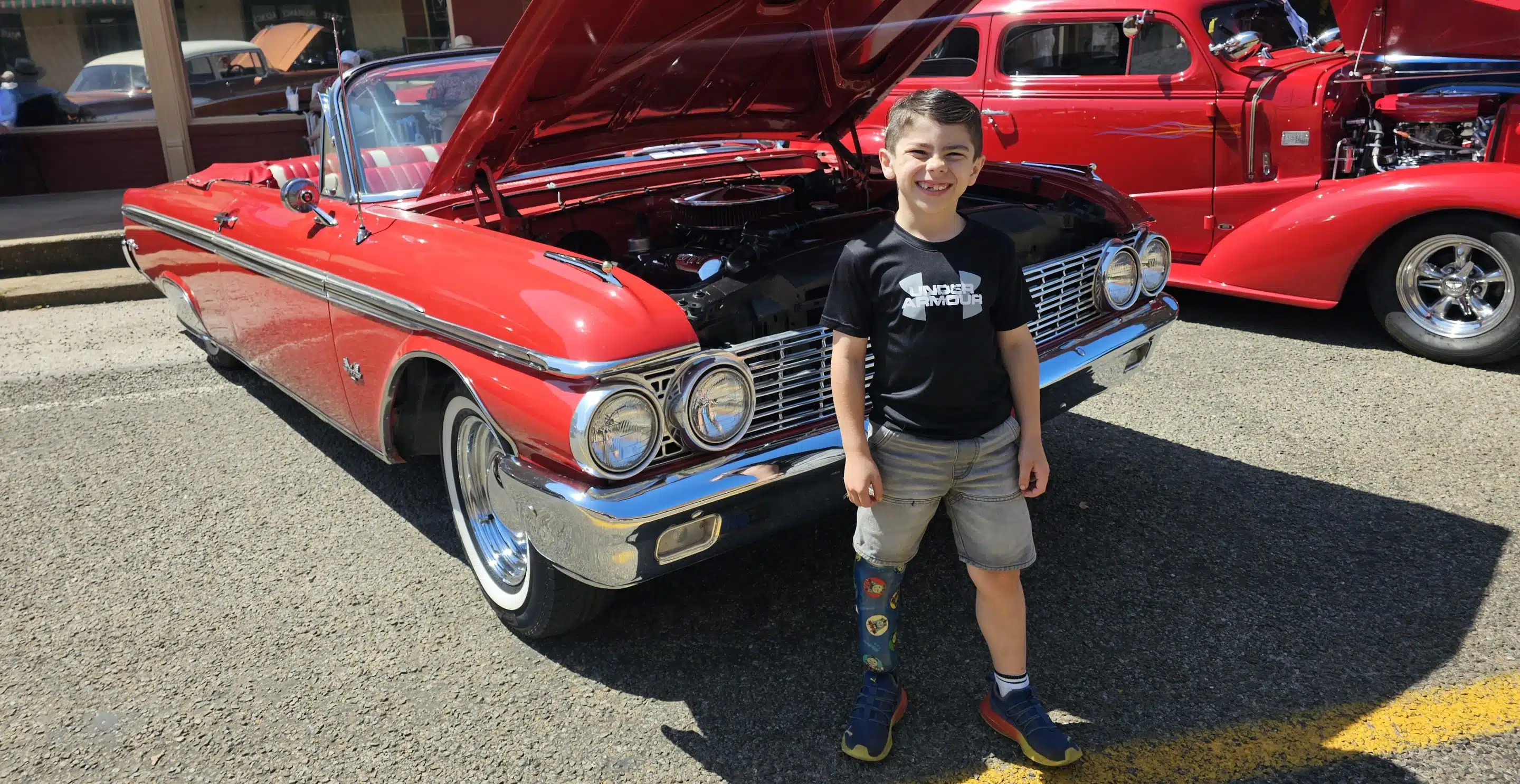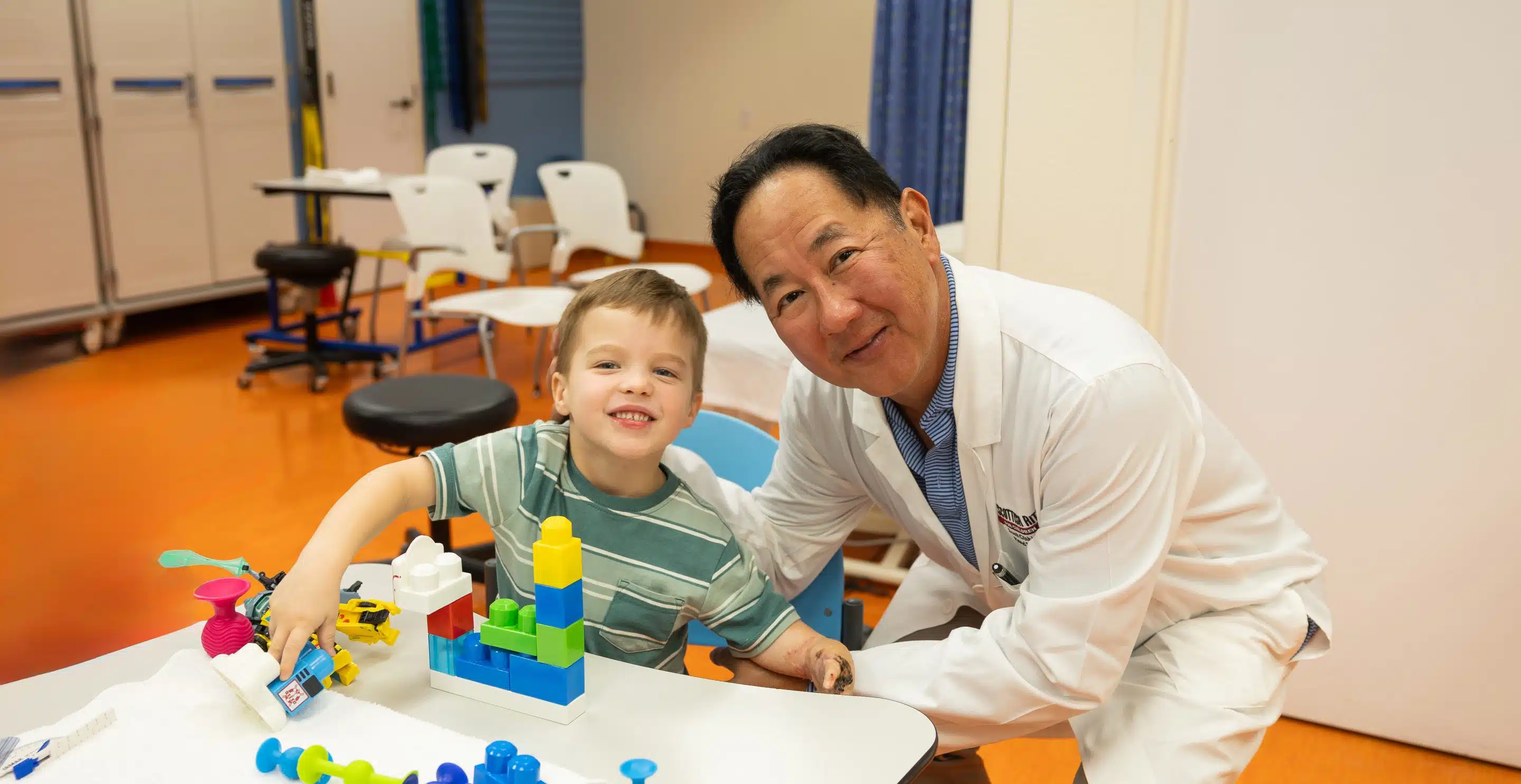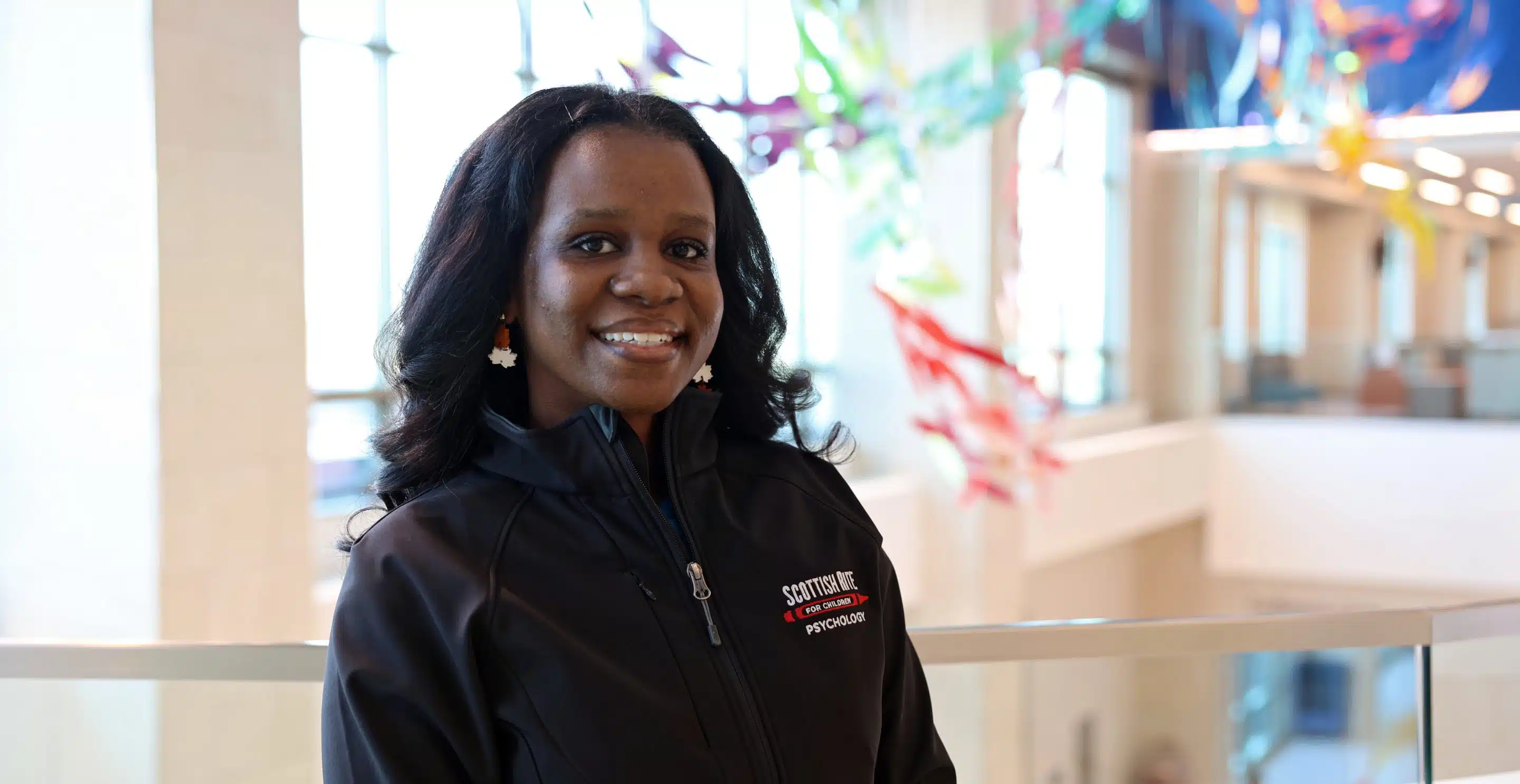At Scottish Rite Hospital, we are dedicated to providing world-renowned patient care. Our team of experts are able to do so through their steadfast commitment to advancing treatment through research and education. The hospital’s physicians and clinical staff are known worldwide for the research conducted in our Center for Excellence in Foot.
Clubfoot is one of the most common pediatric foot conditions that our experts treat. Through research, our team can study this patient population to better understand the condition and develop innovative treatment plans. With voluntary participation from patients, the team is able to review outcomes after treatment and assess how a child with clubfeet is functioning.
Recently, the hospital published two articles on their latest clubfoot research. Below is what our team is learning:
Functional Outcomes of Patient with Clubfeet at 10-year Follow-up
This research was led by Assistant Chief of Staff Lori A. Karol, M.D., Movement Science Manager Kelly Jeans, M.S., and other staff from the Movement Science Lab.
Summary
Our team analyzed outcomes of patients’ feet who received either the Ponseti serial casting (a form of treatment that places a cast from the thigh to the toes after gentle stretching of the foot) or French physiotherapy (daily stretching, exercise and massage, and taping to slowing move the foot to the correct position), and those who later required subsequent surgery. The Movement Science Lab recorded gait analysis, ankle strength, daily step activity and parent-reported outcomes of patients 10 years after receiving treatment.
What We Learned
- Children with clubfeet have less range of motion, movement and power in their ankle in comparison to children with normal feet.
- There are minimal differences in gait, parent-reported outcomes and daily activity between feet treated with Ponseti casting or physical therapy.
- Feet that did not receive surgery had better ankle power and muscle strength than feet requiring invasive joint surgery.
Clinical Significance
This study supports our efforts to minimize invasive joint surgery when treating a patient with clubfoot. Functional studies such as this continue to help our doctors in developing treatment plans for patients diagnosed with clubfoot.
Read the full article
Non-operative Treatment Outcomes for Patient with Non-Idiopathic Clubfeet
This research was led by Chief Medical Officer B. Stephens “Steve” Richards, M.D., and nurse practitioner Shawne Faulks, M.S.N., R.N., C.N.S.
Summary
Our doctors regularly diagnose and begin treating clubfoot during infancy. Since much of the non-operative treatment takes place before developmental milestones, some patients who were initially thought to have “idiopathic” (no known cause) clubfoot may develop other conditions throughout development rendering a “non-idiopathic” diagnosis. Little is known about the treatment outcomes of this population. Therefore, the purpose of this research is to better understand the clinical outcomes of patients who were later found to have non-idiopathic clubfoot, and how their outcomes compare to patients who have idiopathic clubfoot.
What We Learned
- Nearly 1 in 10 infants with idiopathic clubfoot were found to later have non-idiopathic clubfoot due to other orthopedic, neurological or developmental disorders.
- Non-idiopathic patients can be expected to respond favorably to non-operative treatment.
- Patients later found to be non-idiopathic had a greater chance for clubfoot recurrence that required surgery.
Clinical Significance
This study demonstrates the importance of developmental assessments during a child’s clinical visit. Pediatric orthopedic specialists should be proactive in evaluating more than just clubfeet or other orthopedic disorders during follow-up exams.
Read the full article
Learn more about the research in our Center for Excellence in Foot.




